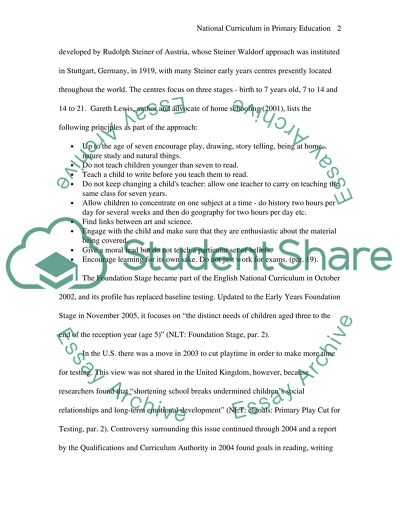Cite this document
(“Discuss the impact of the National Curriculum on child-centred Essay”, n.d.)
Retrieved from https://studentshare.org/miscellaneous/1535747-discuss-the-impact-of-the-national-curriculum-on-child-centred-principles-and-the-use-of-play-within-primary-education
Retrieved from https://studentshare.org/miscellaneous/1535747-discuss-the-impact-of-the-national-curriculum-on-child-centred-principles-and-the-use-of-play-within-primary-education
(Discuss the Impact of the National Curriculum on Child-Centred Essay)
https://studentshare.org/miscellaneous/1535747-discuss-the-impact-of-the-national-curriculum-on-child-centred-principles-and-the-use-of-play-within-primary-education.
https://studentshare.org/miscellaneous/1535747-discuss-the-impact-of-the-national-curriculum-on-child-centred-principles-and-the-use-of-play-within-primary-education.
“Discuss the Impact of the National Curriculum on Child-Centred Essay”, n.d. https://studentshare.org/miscellaneous/1535747-discuss-the-impact-of-the-national-curriculum-on-child-centred-principles-and-the-use-of-play-within-primary-education.


